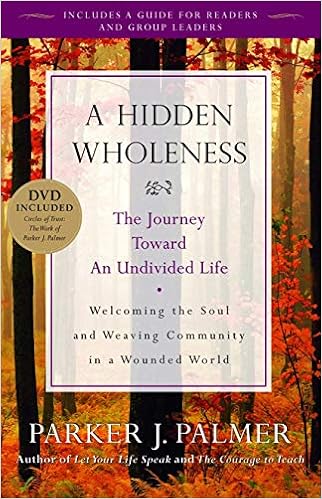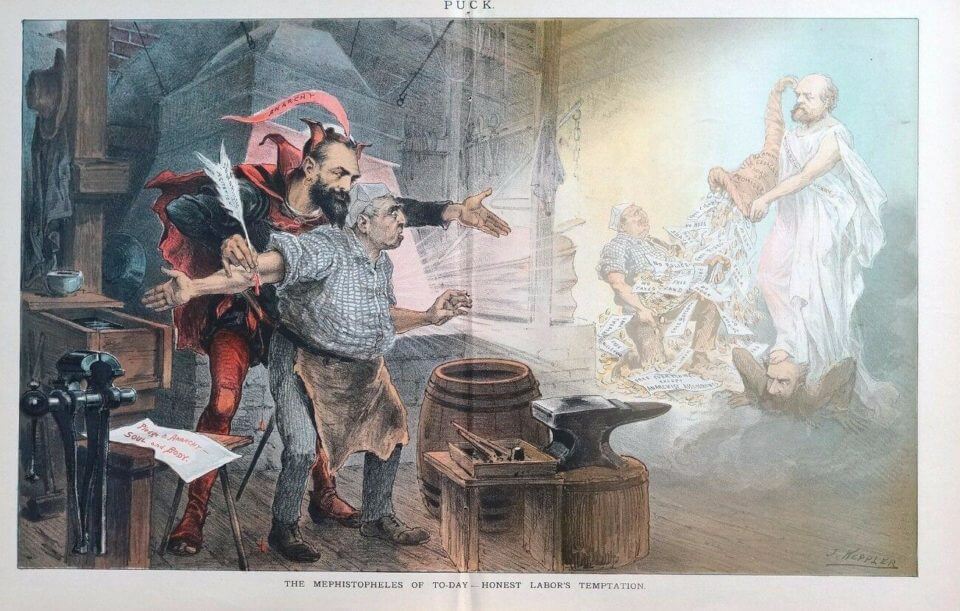
Listen------------------------------------
Editorial Reviews
Review
“NEW TO THIS EDITION: Circles of Trust DVD containing interviews with Parker J. Palmer and Bringing the Book to Life, by Caryl Hurtig Casbon and Sally Z. Hare, a reader's and leader's guide.”
From the Inside Flap
At a time when many of us seek ways of working and living that are more resonant with our souls, A Hidden Wholeness offers insight into our condition and guidance for finding what we seek–within ourselves and with each other.
"The soul is generous: it takes in the needs of the world. The soul is wise: it suffers without shutting down. The soul is hopeful: it engages the world in ways that keep opening our hearts. The soul is creative: it finds its way between realities that might defeat us and fantasies that are mere escapes. All we need to do is to bring down the wall that separates us from our own souls and deprives the world of the soul's regenerative powers."
—From A Hidden Wholeness
New
This paperback edition includes two new and useful features. Circles of Trust is a DVD containing interviews with Parker J. Palmer and footage from retreats he facilitated for the Center for Courage & Renewal (www.CourageRenewal.org). Bringing the Book to Life, by Caryl Hurtig Casbon and Sally Z. Hare, is a reader's and leader's guide to exploring the themes in A Hidden Wholeness. The DVD illuminates and illustrates the principles and practices behind circles of trust. The guide includes questions that connect the DVD to the book, offering "a conversation with the author" as well as an engagement with the text. Together, these features give readers new ways to internalize the themes of A Hidden Wholeness and share with others this approach to sustaining identity and integrity in all the venues of our lives.
Read more
Product details
Publisher : Jossey-Bass; 1st edition (June 2, 2009)
Language : English
Paperback : 272 pages
ISBN-10 : 0470453761
ISBN-13 : 978-0470453766
Item Weight : 10.7 ounces
Dimensions : 5.59 x 0.94 x 7.48 inches
Best Sellers Rank: #22,350 in Books (See Top 100 in Books)
#271 in Spiritual Self-Help (Books)
#364 in Christian Inspirational
#400 in Christian Personal Growth
Customer Reviews:
4.7 out of 5 stars 389 ratings
Videos
Help others learn more about this product by uploading a video!Upload video
More about the author
› Visit Amazon's Parker J. Palmer Page

Follow
Biography
PARKER J. PALMER is a writer, teacher, and activist whose work speaks deeply to people in many walks of life. He is founder and Senior Partner Emeritus of the Center for Courage & Renewal. He holds a Ph.D. in sociology from the University of California at Berkeley, as well as 13 honorary doctorates, 2 Distinguished Achievement Awards from the National Educational Press Association, and an Award of Excellence from the Associated Church Press. In 1998, the Leadership Project, a national survey of 10,000 educators, named him one of the 30 most influential senior leaders in higher education and one of the 10 key agenda-setters of the past decade. In 2010, he was given the William Rainey Harper Award (previously won by Margaret Mead, Marshall McLuhan, Paulo Freire, and Elie Wiesel). In 2011, the Utne Reader named him as one of "25 Visionaries Who Are Changing Your World.” For two decades years, the Accrediting Commission for Graduate Medical Education has given annual Parker J. Palmer “Courage to Teach” and “Courage to Lead” Awards to directors of exemplary medical residency programs. "Living the Questions: Essays Inspired by the Work and Life of Parker J. Palmer," was published in 2005. Born and raised in the Chicago area, he lives in Madison, Wisconsin.
---------------------
Customer reviews
4.7 out of 5 stars
4.7 out of 5
389 global ratings
Top reviews from the United States
Robert W. Johnson
3.0 out of 5 stars Heavy focus on group activities makes it less useful for the individual reader on a solo quest for enlightenment.Reviewed in the United States on February 21, 2015
Verified Purchase
This book is largely devoted to circles of trust. How to form and run one or participate meaningfully in one. That is very important but if you are looking for a reading to gain insight into principles, a self-help kind of book for example, you may be better served by any of Mr. Palmer's other books.
Don't get me wrong. The early sections do cover important concepts and principles, but the book soon turns to circles of trust. It then became less useful to me and, I suspect, to many.
42 people found this helpful
HelpfulReport abuse
4Walzer
5.0 out of 5 stars Parker Palmer talks to leadersReviewed in the United States on December 7, 2019
Verified Purchase
I work with leaders. If you are a leader you lead by who you are. This book examines that inner landscape of a leader that is often hard to face and explores ways to confront the many dimensions of our dividedness in community with other leaders on the same journey. It is not a self-help book. Instead it is a journey guide that encourages you to listen to that inner voice that gets silenced so often in our best attempts to grow as leaders. It is a foundational book that goes beyond any of the newer attempts to encourage ethical, authentic, or servant, or even spiritual leadership in the current literature. Not difficult to read, but challenging to put into practice without a community of identity to support you in this journey. I found myself wrestling with some of the theological concepts at the base of his explorations.
One person found this helpful
HelpfulReport abuse
2am reader mom
5.0 out of 5 stars While it may be that these group processes seem like they'd be used by business leadersReviewed in the United States on February 9, 2015
Verified Purchase
While there were many valuable points to this book, which I will return to many times, particularly appreciated Parker Palmer's description of how he communicates with others in a "clearness committee," which is founded in Society of Friends (Quaker) practice. While it may be that these group processes seem like they'd be used by business leaders, teachers, or therapists - anyone leading a group - the tenets of careful listening, silence, and "not giving advice" are extremely effective in everyday communication, and quickly disarm any underlying tension in conversations. (His description of this process is much more detailed and elegant than my brief synopsis, but I strongly recommend reading this book, and paying careful attention to how you hear others, and your own speech, within this frame of reference - very enlightening.) A wonderful. large-hearted book.
16 people found this helpful
HelpfulReport abuse
Vicky
5.0 out of 5 stars Great book, I will read it again for sure!Reviewed in the United States on November 25, 2019
Verified Purchase
What an amazing book, so well-written and full of insight and experiences/feelings that I could definitely relate to. Fast-moving, touching, reading it made me feel like I was right there with the author, I highly recommend this book!
One person found this helpful
HelpfulReport abuse
jamie
5.0 out of 5 stars Palmer is one of those writers that gets to the ...Reviewed in the United States on July 9, 2018
Verified Purchase
Palmer is one of those writers that gets to the issues. Particularly helpful for those who are hoping to build trusting communities, but the applications of the methodology are almost limitless.
2 people found this helpful
HelpfulReport abuse
drlarry
5.0 out of 5 stars HelpfulReviewed in the United States on March 7, 2018
Verified Purchase
Very interesting. Reminded me of the value of asking open questions and listening to the responses as opposed to rescuing, saving, advising, and setting them straight.
2 people found this helpful
HelpfulReport abuse
Steve B
5.0 out of 5 stars My favorite book!Reviewed in the United States on July 20, 2020
Verified Purchase
This book was a required text for one of my masters classes. Loved it so much that I bought other books by same author. If you want to make sense of how broken or torn life sometimes makes you feel--this is a wonderful journey to take.
HelpfulReport abuse

Amos Smith
5.0 out of 5 stars My favorite book by Parker PalmerReviewed in the United States on May 24, 2014
Verified Purchase
I read a lot of Parker Palmer. I find him eloquent and profound. This is probably my all time favorite of his books. It goes to a deep place of inner knowing that has come after my many years of Centering Prayer practice. I appreciate his holistic perspective that takes account of our wounds as a source of humility, illumination, and holistic wisdom. Highly recommended!
-Amos Smith (author of Healing The Divide: Recovering Christianity's Mystic Roots)
10 people found this helpful
HelpfulReport abuse
See all reviews
Top reviews from other countries
Mr L McElderry
5.0 out of 5 stars A truly remarkable book.Reviewed in the United Kingdom on March 2, 2018
Verified Purchase
A remarkable book which provides many insights into a true meaning of living and, most importantly, how to use that learning in practical ways. Parker Palmer's Quaker background shines through the text: helping the reader to explore without feeling led. The workbook at the back provides a wonderful blueprint for further exploration of the book in simple steps, either alone or in a group of safe friends. It is this that brings the book alive. And then there is the added bonus of the DVD which provides a beautiful visual guide to how you can start to enrich your life with all the gems of wisdom that Parker has illuminated with his own inner light.
Report abuse
Miate
5.0 out of 5 stars Another excellent book by Parker - to be treasured and truly ...Reviewed in the United Kingdom on February 1, 2018
Verified Purchase
Another excellent book by Parker - to be treasured and truly listened to and not just read - a book for reflection
Report abuse
Amazon Customer
5.0 out of 5 stars Five StarsReviewed in the United Kingdom on February 6, 2017
Verified Purchase
excellent quality thankyou
Report abuse
Bonnie Hutchinson, Transitions: Pathways to the Life and World Your Soul Desires
5.0 out of 5 stars Imspired me even more than I expectedReviewed in Canada on April 13, 2018
Verified Purchase
I've been a Parker Palmer fan for a while, but this book inspired me even more than expected. Besides his usual warmth, humour and wisdom, this book lays out a specific process and structure for creating Circles of Trust where our shy souls can speak with us more directly - or perhaps, where we can hear our deepest authenticity more clearly. All the way through, Palmer is clear that wholeness is about alignment with and expression of our souls, our authentic selves, in an environment of mutual respect, trust and acceptance. I especially appreciated the specific description of processes and environments in which soul expression more easily emerges.
Report abuse
Amazon Customer
5.0 out of 5 stars Great Book on Deep CommunityReviewed in Canada on May 26, 2020
Verified Purchase
This book is great. Rather than being about spiritual formation in general, it illustrates how to foster and crest “circles of trust” where people can bring their entire selves safely and find transformation in giving to and receiving from others. This book really caused me to think about how I lead any group discussion. Its great.
Report abuse
See all reviews











 (Puck magazine, Oct 20, 1886 – Henry George, Mephistopheles of Today – Honest Labor’s Temptation)
(Puck magazine, Oct 20, 1886 – Henry George, Mephistopheles of Today – Honest Labor’s Temptation)
